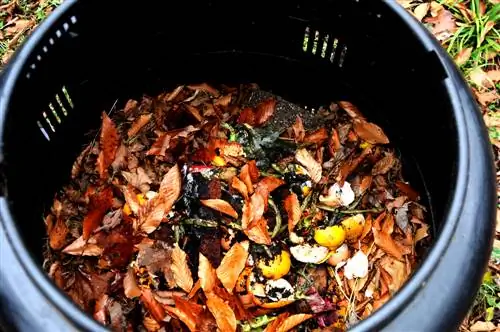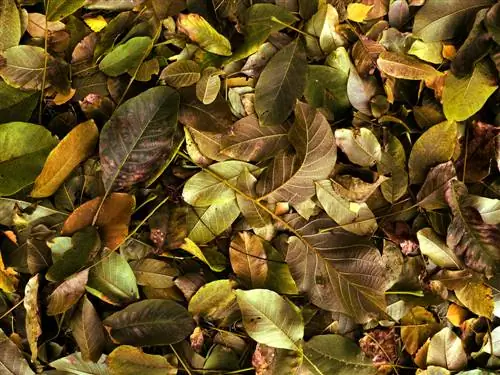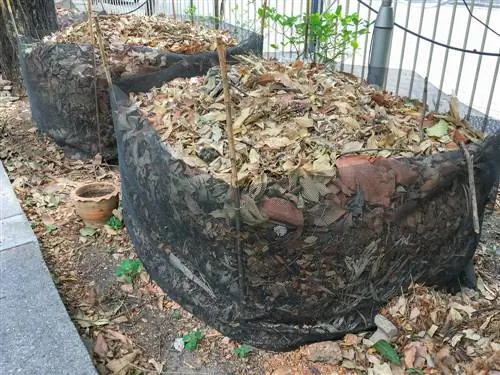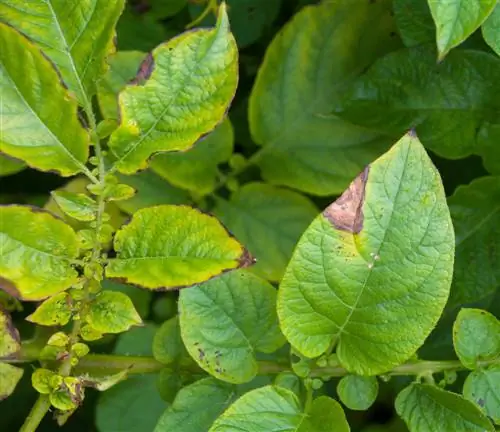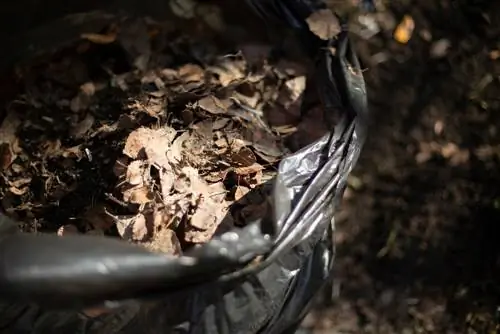- Author admin leonars@hobbygardeners.com.
- Public 2023-12-16 16:46.
- Last modified 2025-01-23 11:22.
Even one stately tree is enough to find a overwhelming mass of leaves on the ground in autumn. In order to cope with the amount and soon get a decent amount of soil from it, there are ways to speed up the rotting of the leaves in the compost.
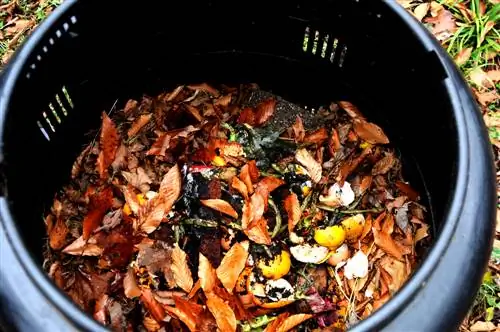
How to speed up composting of leaves?
To speed up the composting of leaves, you can mix shredded leaves with natural accelerators such as lawn clippings, horn meal, bentonite, soil, algae lime, wood chips or kitchen waste into the compost in layers. Alternatively, you can use a homemade compost accelerator made from yeast, sugar and water.
How long does it take for leaves to rot?
The duration of complete decay of leaves is between1and5 years. It depends on what foliage it is. The leaves of fruit trees, for example, rot into the ground after just one year.
Are there natural materials that accelerate the rotting of leaves?
In addition to commercially available compost accelerators, there arevery many natural materials that you can use to accelerate the rotting of leaves.
For example, grass clippings are often used to speed up composting. Grass contains lots of nitrogen. The microorganisms can multiply easily with the help of nitrogen, which means that the leaves decompose more quickly.
Other natural materials can also be helpful in speeding up the decomposition of composted leaves. These include, among others:
- Horn meal
- Bentonite
- Earth
- Algae limestone
- Wood chips
- Kitchen waste
How do you mix natural accelerators into the foliage?
You can simply add the natural compost acceleratorsin layersinto the pile of leaves or into the composter. Try to distribute the respective accelerator well.
How can the rotting of leaves be accelerated without additives?
The leaves can rot more quickly throughshredding. If you have a shredder (€1.60 on Amazon), throw the leaves in there. Alternatively, you can drive over the leaves with the lawnmower. Theshredded leaves can simply be added to the compost.
In addition, to speed up the rotting process, it is advisable to layer the leaves alternately with brushwood or twigs on the compostlayers.
Decomposition is even faster if the leaves are left on theground. There the microorganisms penetrate more freely from the soil to the leaves.
How to make a compost accelerator for leaves?
You can also make your own compost accelerator fromyeast,sugarandwater. Nothing more is necessary. The yeast bacteria that multiply in the sugar-water mixture help the leaves rot.
Which leaves rot the fastest?
Foliage of trees that contain onlyfew tannins, such as ash, hazelnut, birch, linden, maple, black locust, elm, willow and beech, rot next to the leaves of fruit trees fastest. Therefore, such leaves should preferably end up in the compost.
Which leaves should not end up in the compost?
Leaves that have a high content oftannins rot very slowly and ideally should not be sent to the compost. These include, among others, the foliage of poplar, walnut, plane tree, chestnut and oak.
Tip
Accelerating leaf decomposition in a thermal composter
In addition to various materials to support the decomposing microorganisms, there is the option of using a thermal composter. In the thermal composter, the leaves rot more quickly. In addition, the resulting heat kills fungi and other pathogens on the leaves.

